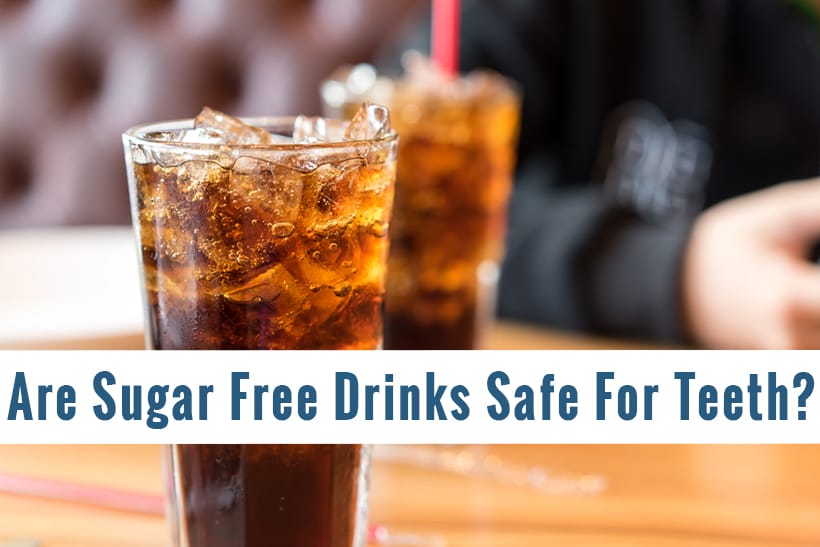
When it comes to tooth decay, most people realize sugar has direct effects on our teeth. While you might have heard your dentist refer to watching your sugar intake to reduce your risk of cavities, many aren’t as familiar with acidity and how this affects our teeth.
While it would be nice and convenient if sugar-free drinks could eliminate all our decay problems, unfortunately, it’s just not the case. When it comes to drinking selections, we can’t merely look at sugar content because it only tells half the story. We also need to be mindful of pH levels (acidity), how you’re consuming the beverage, and what other additives are present.
How Does Acidity Affect My Teeth?
Acidity has to do with pH levels. The normal pH range of saliva is 6.2 to 7.6. If your saliva’s pH level drops below 5.5 (such as when you’re drinking acidic beverages), the acids start to break down your tooth enamel. As the numbers on the pH scale drop even lower, the environment is becoming more acidic.
Let’s take Diet Coke as an example. Diet Coke is a sugar-free drink, yet it can still do significant damage to teeth due to its acidity (pH of 3.28).
What Is The Acidity Level In My Beverage?
Knowing what’s in your sugar-free drink will help you to understand how it could affect your teeth. We’ve discussed how eliminating sugar in drinks is helpful because the bacteria in our mouth won’t be able to ingest it and turn it into acid.
Even when consuming a “sugar-free” drink, we aren’t entirely off the hook for enamel erosion because low pH levels cause dental decay and cavities. Check out the levels of acidity in these common beverages:
- Borden Vitamin D Milk: 6.90
- Coffee with Original Coffee-Mate Creamer: 6.75
- Deja Blue Water: 5.49
- Budlight: 4.33
- Diet Coke: 3.28
- Crystal Light Sugar-Free Peach Tea: 3.05
- Coca-Cola Classic: 2.50
The interesting thing about this list is many of these drinks have little to no sugar. Yet when we look at their pH levels, all are in a range that can still cause enamel erosion. And that’s a problem.
So What Should I Actually Drink?
The good news is most of us don’t need to consume only neutral pH water to keep our mouths cavity-free. There are things we can do to help the effects of acidity from sugar-free drinks to a minimum.
Try these tips next time you consume a sugar-free drink to reduce its acid exposure effects on your teeth:
1. Brush twice a day with fluoride toothpaste.
2. Drink acidic drinks at meal-time and drink water between meals.
3. Drink through a straw to limit the acid exposure to your teeth.
4. Choose drinks that have a pH closer to neutral such as milk or coffee.
5. Don’t forget that routine dental cleanings are the best way to keep your teeth and oral health on track!
6. Never sip! Sipping your sugar-free drink gives your teeth constant exposure to acidity and will significantly increase your risk of decay.
Other Things To Consider When Choosing A Beverage
Diet or sugar-free beverages usually contain phosphoric acid. Citric acid and tartaric acid are additional ingredients you may find in fruit juices that can damage teeth. Keeping an eye out for these additives when choosing your next beverage will help you stay on track for a beautiful smile while minimizing enamel erosion!
Cutting down on your sugars is a healthy choice to make. But remember, it isn’t a guarantee in protecting your teeth’s enamel.
At Riverside Dental Care, we also encourage you to consider the acidity in the sugar-free drinks you’re consuming, maintain excellent home tooth care, and continue your routine dental check-up and cleanings.



Leave a Reply